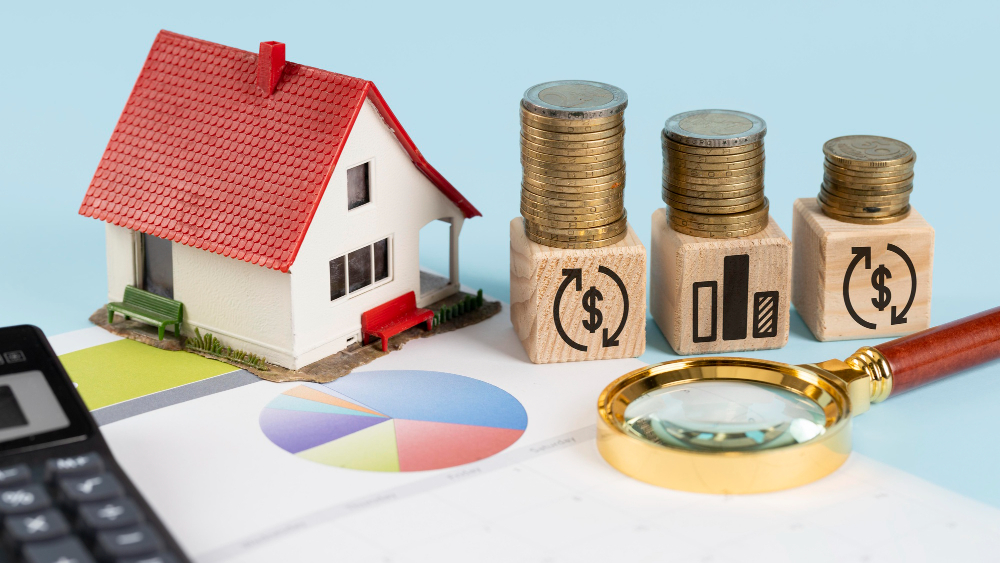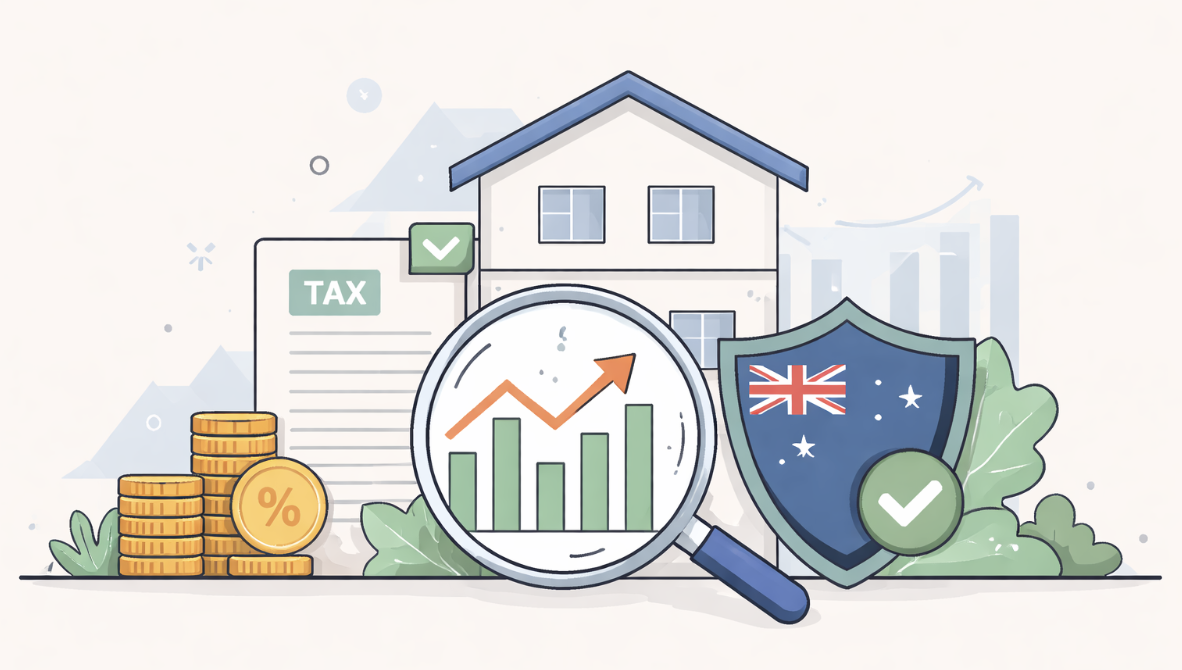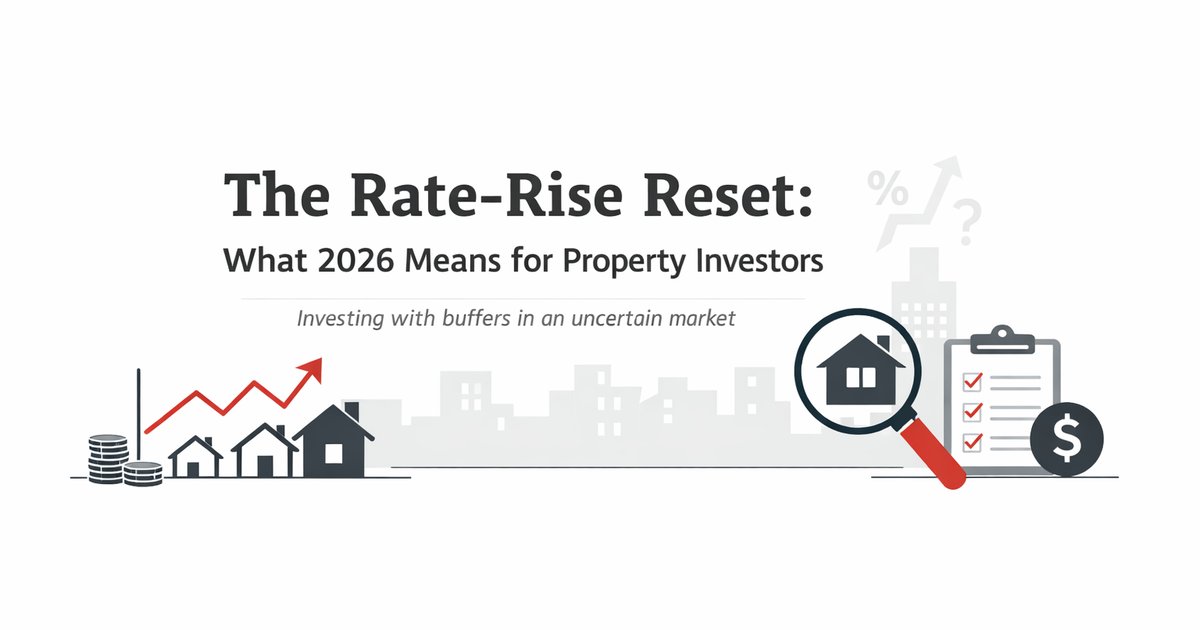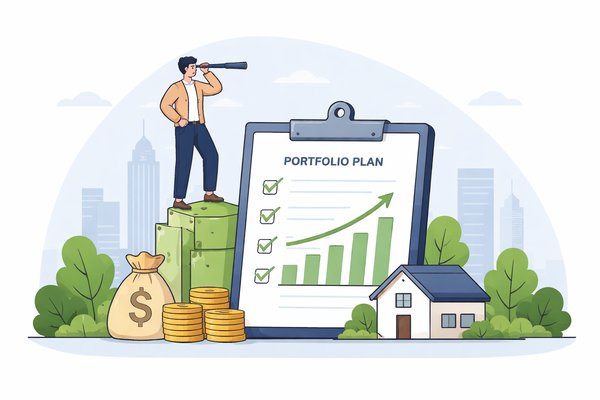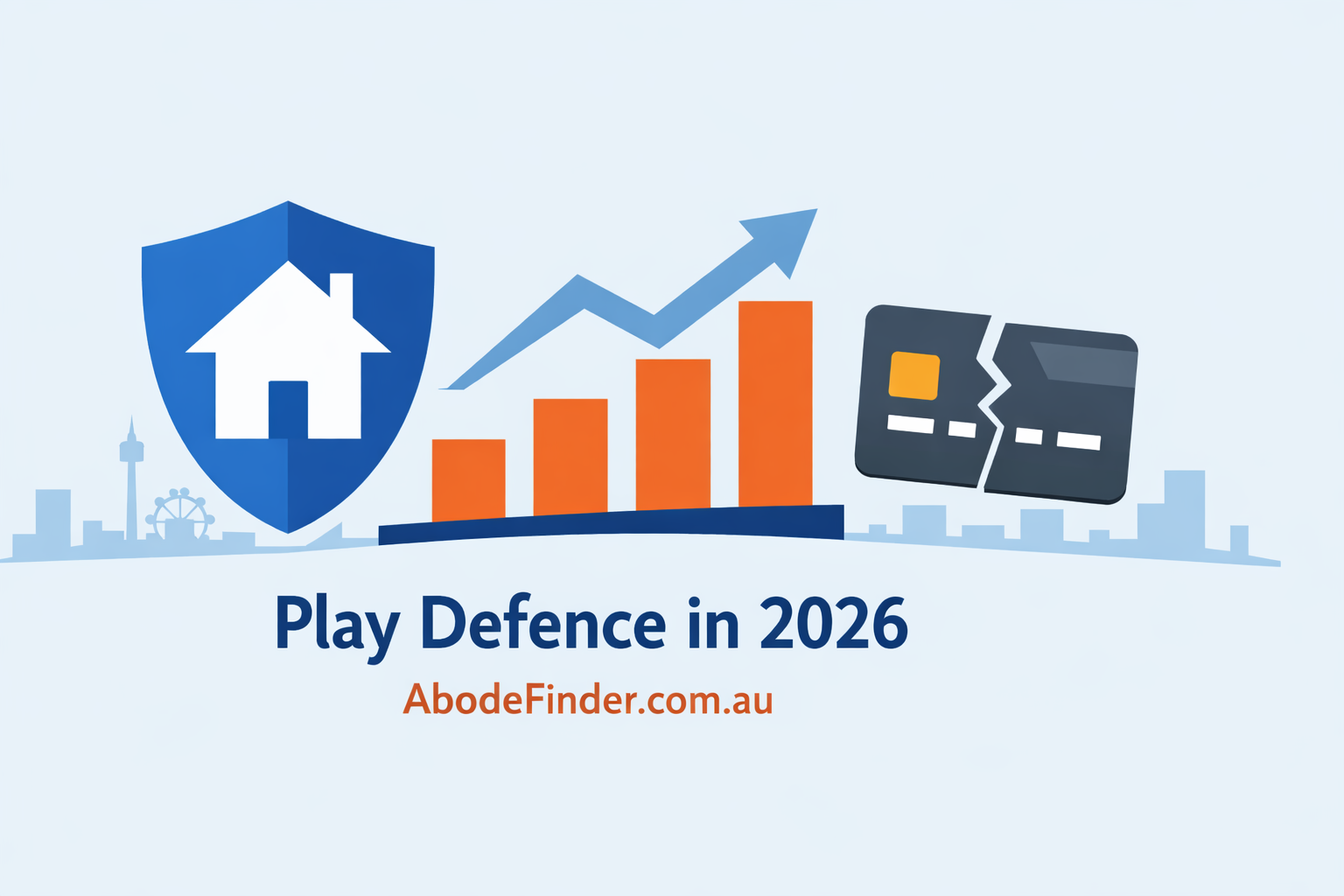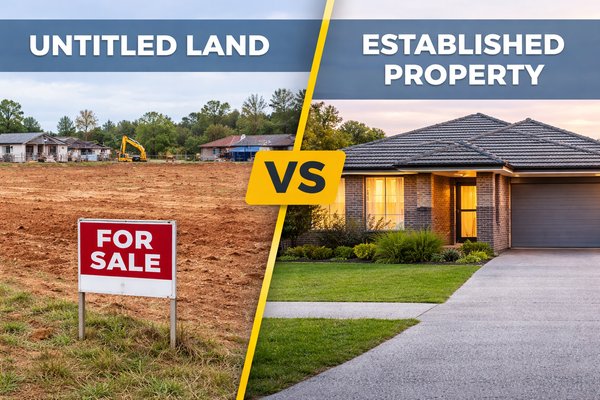Debt has a bad reputation, but the truth is, not all debt works the same way. For most people, debt feels like a burden. But smart property investors see it differently.
When used well, debt becomes a tool to grow long-term wealth. The key is understanding the difference between good debt and bad debt, and how property loans, when applied strategically, can create passive income and build equity.
In this article, we’ll break down:
-
What separates good debt from bad debt
-
How to avoid common traps that hold investors back
-
Why property can be one of the smartest ways to use borrowed money
Whether you’re buying your first investment or growing your portfolio, knowing how to use debt wisely can change your financial future.
What’s the Real Difference Between Good and Bad Debt?
Debt itself isn’t the problem. It’s how you use it that makes or breaks your financial future. Smart investors know that not all borrowing is created equal. While some types of debt work against your goals, others can actually push you forward, especially when used strategically in property investment.
Good Debt Fuels Growth
Good debt is used to acquire assets that increase in value or generate income. Property loans fall into this category when managed well. By leveraging other people’s money (in this case, the bank’s), investors can scale their portfolio, boost returns, and use debt as a stepping stone to long-term wealth.
Benefits of good debt:
-
Helps you purchase income-generating or appreciating assets (like investment properties)
-
Enables you to grow your net worth over time
-
Often comes with tax deductions for interest and expenses
Bad Debt Keeps You Stuck
Bad debt is typically linked to items that lose value or provide no future return. This type of borrowing feels good in the short term but has long-term consequences. It drains your cash flow, limits your borrowing power, and makes it harder to invest when real opportunities arise.
Examples of bad debt:
-
Car loans, credit cards, or Buy Now Pay Later services used for lifestyle spending
-
Debt used for holidays, gadgets, or luxury items with no financial return
-
Ongoing repayments that don’t help you build equity or income
When you understand the difference, you can stop fearing debt and start using it as a tool to get ahead.
Why Property Loans Can Be a Smart Form of Good Debt
When used correctly, property loans are one of the most effective tools to build long-term wealth. Unlike consumer debt, which drains your savings, a well-structured mortgage can unlock growth and income potential, without requiring you to come up with the full purchase price upfront.
Real Assets vs Depreciating Assets
The key difference lies in what the loan is used for. A car loses value the moment you drive it off the lot. New electronics and luxury items also drop in value with time and use. But property? It often appreciates, and it can pay you rent along the way.
Why property stands out:
-
Property typically grows in value over time, especially in well-chosen suburbs
-
You can earn rental income while holding the asset
-
Every mortgage repayment increases your ownership stake, building equity
Leverage Can Work in Your Favour
One of the biggest advantages of using property loans is leverage the ability to control a high-value asset with a much smaller outlay of your own money. For example, a $100,000 deposit could secure a $500,000 property. If that property grows in value, you benefit from the full growth, not just the part you paid for.
How leverage builds equity faster:
-
A smaller deposit gives you control of a much larger asset
-
Growth is calculated on the full property value, not just your deposit
-
Equity builds through both capital growth and your repayments
Property loans give you the chance to put your money to work in a meaningful way, and with the right advice, they can be the foundation of a smart investment plan.
How Smart Investors Think About Debt
When it comes to money, emotion often wins over logic. For many Australians, debt is something to fear, not manage. But smart investors know how to separate the two. They look at debt as a tool, not a trap.
Fear of Debt Holds People Back
It’s common to grow up hearing “don’t get into debt.” While that may apply to credit cards and car loans, applying the same thinking to property can limit your potential.
Here’s what often happens:
-
People avoid borrowing, even for income-generating assets
-
They miss out on the compounding benefits of early investing
-
Fear stops them from learning how to use loans effectively
The result? Years of lost opportunity while others use smart debt to grow their portfolio.
Use Strategy, Not Emotion
Property investors who succeed don’t take on debt casually; they use strategy. Every loan they accept is backed by research, risk management, and long-term thinking.
Strategic debt decisions include:
-
Running the numbers on rental yield and capital growth
-
Comparing loan options for flexibility and cost
-
Planning for interest rate changes and vacancy risks
Smart debt is never accidental. It’s a calculated move designed to put money to work in ways that match your goals. And when paired with the right buyer’s agent, that strategy becomes even more powerful.
Avoiding the Traps of Bad Debt
Good debt can grow your wealth, but only when it’s used wisely. Many investors get caught in the trap of thinking any loan is helpful. In reality, borrowing without a plan can hurt your finances just as fast.
Don’t Overextend
It’s easy to get excited about a new investment. But stretching your finances too far is one of the fastest ways to turn good debt into a bad decision.
Before you borrow, ask yourself:
-
Can I still afford repayments if interest rates rise?
-
What happens if my property sits vacant for a few months?
-
Do I have a buffer for surprise maintenance costs?
A smart investor plans for the risks, not just the rewards. That means borrowing within your limits, not what the bank says you can afford.
Don’t Confuse Spending With Investing
A mortgage doesn’t automatically mean you’re making a smart move. Some properties look attractive on paper but fail to grow in value or attract good tenants.
Avoid this mistake by checking:
-
Is the property in a high-demand suburb?
-
Will the rental yield support my repayments?
-
Has the suburb shown consistent capital growth?
At AbodeFinder, we see this often; investors buy homes that feel right emotionally but don’t meet the criteria of an investment-grade property. That’s why working with the right buyer’s agent matters.
When to Start Using Debt to Build Wealth
Timing can make a big difference in how effectively you use debt to grow your property portfolio. While some wait until they feel “ready,” smart investors know that building wealth often comes from starting early and thinking ahead.
Earlier Is Often Better
The sooner you buy your first investment property, the more time you give it to grow in value. Property investing works best when you allow compounding growth to do the heavy lifting over many years.
Here’s why time matters:
-
Property values tend to rise over the long term.
-
Rental income can increase while your mortgage stays stable.
-
You build equity passively, which you can later use as leverage.
Waiting too long can mean missing out on growth cycles or getting priced out of quality suburbs.
Think Long-Term
While flipping houses might sound appealing, it’s not a strategy for everyone, especially in uncertain markets. Long-term investing brings more consistent returns and helps you build equity to fund your next purchase.
Smart long-term strategies include:
-
Buying well-located properties with strong rental demand
-
Holding through cycles to benefit from compounding
-
Using the equity from one property to buy another
At AbodeFinder, we help clients build strategies based on their goals, not hype. Whether you’re starting with your first property or looking to grow a portfolio, using debt wisely can turn your income into long-term wealth.
How AbodeFinder Can Help
Buying the right property is only half the story. The bigger picture is about having the right strategy to use debt as a tool for long-term wealth. That’s where AbodeFinder steps in.
Strategy First, Property Second
We’re not just about matching you with any buyer’s agent. We connect you with experts who help build the right plan around your goals, before suggesting properties.
What this means for you:
-
Clear, personalised debt strategies to support long-term growth
-
Guidance that puts your financial goals first
-
No guesswork; just expert support
Education and Insights
We believe investors make better decisions when they’re informed. That’s why we give you access to the same insights the pros use.
With AbodeFinder, you get:
-
Support in identifying investment-grade property, not just any home
-
AI-powered suburb recommendations based on rental yield, growth potential, and your borrowing capacity
-
Insights to help you avoid costly mistakes
At AbodeFinder.com.au, we combine strategy, expert support, and smart tech to help you build wealth step by step, property by property.
Conclusion
Good debt isn’t something to fear; it’s a tool that, when used with a plan, can help you build lasting wealth through property.
The difference between good and bad debt often comes down to how you use it and who’s guiding you.
At AbodeFinder, we don’t just point you to properties. We help build the right plan around your goals before suggesting properties.
If you’re serious about using debt to grow your property portfolio, let us help you get started with clarity, confidence, and expert advice tailored to your goals.
Visit abodefinder.com.au to work with property strategists who plan for your future, not just your next purchase.
